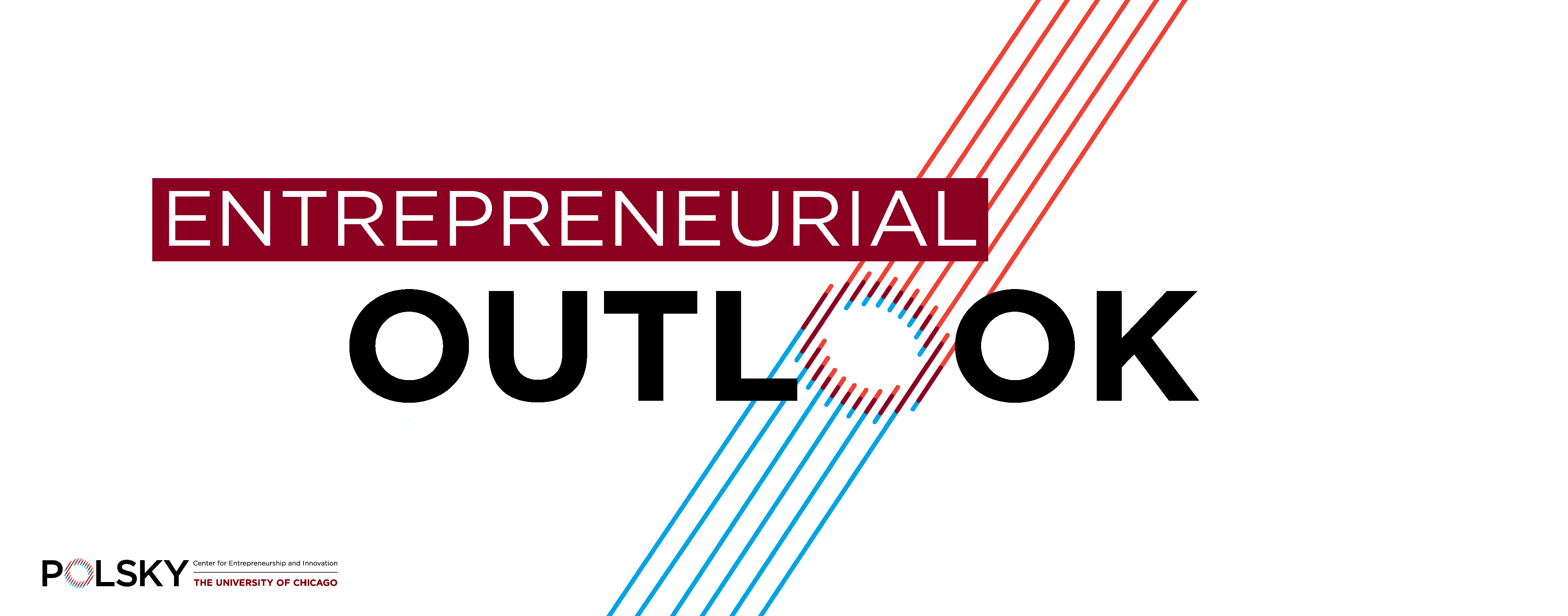Health Diagnostics 2021: ‘Everything Has Changed’

The annual Entrepreneurial Outlook series continued last week with a discussion about health diagnostics and the state of the industry in 2021. The discussion was moderated by Christine Karslake, MBA ’95, managing director of science ventures at the Polsky Center.
“Everything has changed this past year,” said Savas Tay, associate professor of molecular engineering, Pritzker School of Molecular Engineering at the University of Chicago, alluding to the effects of the COVID-19 pandemic.
While the value of team science and interdisciplinary research has become more apparent recently, Tay said the pandemic has only emphasized its importance. “Some of the walls have been torn down,” he explained. “We really hope that some of these changes aren’t temporary. We don’t want to go back to life as normal.”
Tay, who is a systems biologist and bioengineer working at the interface of biology, physics, and engineering, stressed the importance of bringing together different systems and cultures – in addition to establishing better research and business models to continue the momentum and provide funding during “down times.”
“Really amazing research is being done,” he said, “we shouldn’t go back to putting them on the backburner.” Importantly, pandemics are not a one-off event and there will be more, said Tay, citing the existence of other viruses and more global travel, in addition to higher population densities.
But infectious diseases and virology are fairly well understood, compared to cancer research where the questions are big and a lot is still unknown. “We can make an impact if we respond in a timely matter preventing these things from happening,” said Tay.
“Now we better understand the importance of infectious disease,” he added. “It can change everything in our lives.”
New Tools, New Approaches
Arun Bhatia, MBA ’06, open innovation and startup engagement lead at Roche, said there has been a greater emphasis and scrutiny on value and clinical utility. How the diagnostic fits into a user’s workflow also is important, as is how it connects with other diagnostics and therapies.
Additionally, as costs have declined, diagnostics have become decentralized, shifting from large labs to point-of-care sites and even to the home. “As a result of that a lot has become more personalized,” Bhatia said. “That personalization and precision approach is a big trend.”
As these tools get more sophisticated they also are transitioning into prognostic tests – providing information that can be used to inform treatment plans. “These diagnostics are trying to be better at the prevention side, or at least early wellness,” said Bhatia.
The other important benefit is the ability to continually provide feedback, providing insight into how a condition changes over time. However, a challenge is the disconnect between “addressing one thing and preventing one disease,” explained Bhatia. “As we get smarter about science and human health we’re realizing there’s not a 1:1 correlation.”
This has led the push toward developing a platform approach that addresses several diseases. Bhatia described it as the “cockpit mentality” in which the pilot has to keep an eye on all things.
Echoing this sentiment, Rhaeos CEO Anna Lisa Somera noted the importance of having a platform technology. Her advice to entrepreneurs is to do a lot of customer discovery “and don’t just leave it at the front end – it’s something you should do throughout your business changes,” she said, “you learn things along the way. I think it’s really important to continue these interviews along the life of a technology.”
Wearables also are enabling telemedicine, said Sean Kendall, MBA ’16, senior associate, ARCH Venture Partners. “One big trend we’ve been seeing is an increasing complexity as well as a certain sort of refinement,” he added. “We have newer tools that are driving us deeper insights of biology than ever before.”
// The virtual event, part of series of Entrepreneurial Outlooks, was made possible with support from Loeb and Loeb. View the recording via Polsky on Demand, here.